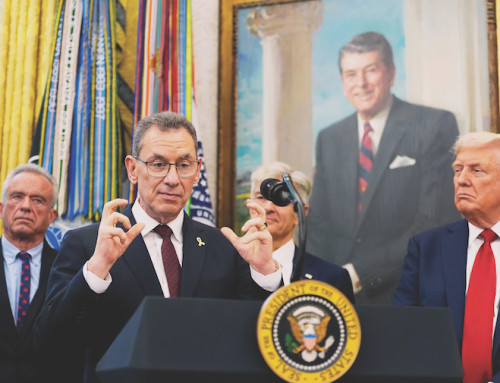WASHINGTON (AP) — The White House is asking nine major universities to commit to President Donald Trump’s political priorities in exchange for more favorable access to federal money.
A document sent to the universities encourages them to adopt the White House’s vision for America’s campuses, with commitments to accept the government’s priorities on admissions, women’s sports, free speech, student discipline and college affordability, among other topics.
Signing on would give universities “multiple positive benefits,” including “substantial and meaningful federal grants” and “increased overhead payments where feasible,” according to a letter sent to universities alongside the compact. The letter calls it a proactive effort as the administration continues to investigate alleged civil rights violations on campuses.
Called the “Compact for Academic Excellence in Higher Education,” it asks universities to accept the government’s definition of gender and apply it to campus bathrooms, locker rooms and women’s sports teams. It asks colleges to stop considering race, gender and a wide range of student demographics in the admissions process and to require undergraduate applicants to take the SAT or ACT.
The 10-page proposed agreement was sent to some of the most selective public and private universities: Vanderbilt, the University of Pennsylvania, Dartmouth College, the University of Southern California, the Massachusetts Institute of Technology, the University of Texas, the University of Arizona, Brown University and the University of Virginia. It was not clear how these schools were selected or why.
The nine universities could become “initial signatories” and are being invited to provide feedback before the language is finalized, according to the letter. It asks for a decision by Nov. 21.
The memo represents a shift in strategy as the administration offers a reward — not just punishment — as an incentive for adopting Trump’s political wish list. Many of the demands mirror those made by his administration as it slashed billions of dollars in federal money for Harvard, Columbia and others accused of liberal bias. A federal judge overturned cuts at Harvard in September, saying the government had overstepped its authority.
Under the compact, international enrollment would have to be capped at 15 percent of a college’s undergraduate student body, and no more than 5 percent could come from a single country.
All of the universities invited to the compact appear to be within the 15 percent threshold, though Dartmouth and USC are close, at 14 percent, according to federal data.
Many universities do not report breakdowns by individual countries.
Most other universities also fall within the 15 percent cap, but about 120 exceed it, including Columbia University, Emory University and Boston University, federal data show.








